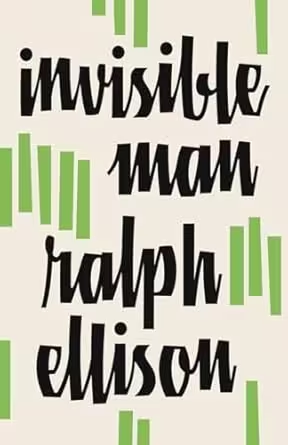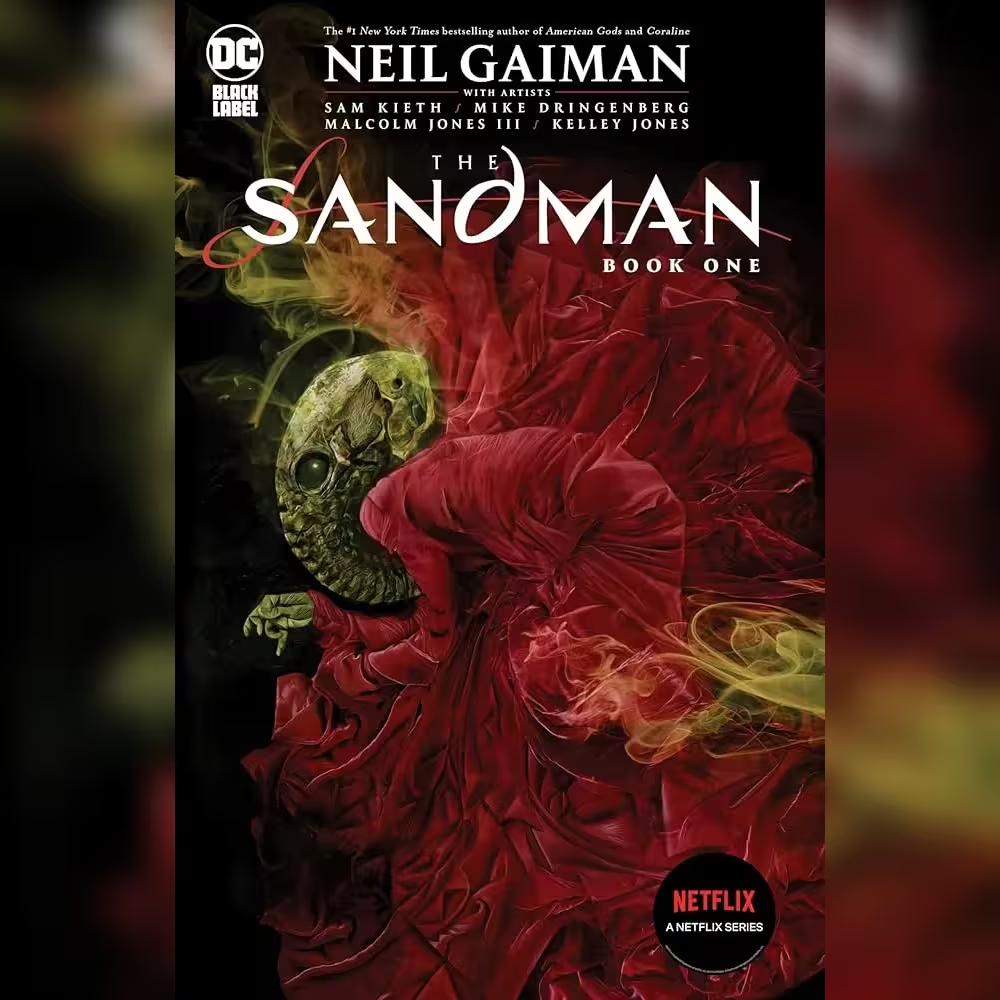This book review of Invisible Man by Ralph Ellison is part of my Amazon 100 Books to Read in a Lifetime Quest.
This post pay contain affiliate links, which means that I may receive a commission if you make a purchase using these links. As an Amazon Associate I earn from qualifying purchases. Thanks for helping to support the content on this site.

Invisible Man
- Author: Ralph Ellison
- Genre: Fiction, Historical Fiction
- Publisher: Vintage
- Pages: 581 pages, Paperback
I was never more hated than when I tried to be honest. Or when, even as just now I’ve tried to articulate exactly what I felt to be the truth. No one was satisfied
Ralph Ellison, Invisible Man
When I first picked up Invisible Man by Ralph Ellison, I didn’t know what to expect. My usual rule is to not research a book very much before reading it – less chance of spoilers, for one, but more importantly, it allows me to explore the world intended by the author with fresh eyes. I had heard about the book, like most people, for years, but I never got around to reading it until now. If I’m being honest, as a white male reading this classic in today’s world, I felt a mix of excitement and nervousness. While the book was first published in 1952, its themes of identity, race, and invisibility seem just as important today.
A Journey into the Invisible
From the very first page, I felt drawn into the world of the narrator, a black man who describes himself as “invisible.” This invisibility is not about being unseen physically. Instead, it reflects how society ignores his identity and humanity. This idea struck me deeply. Even though I cannot fully understand his experiences, I could see the relevance in today’s world where many voices still go unheard. I certainly can relate to times in my life where I have felt unheard. Though clearly not on the same level.
Ellison’s writing makes me think about how people are often judged by their appearance or their background rather than who they truly are. The narrator’s struggles to find his place in a world that refuses to see him feel especially powerful. This theme is not just a relic of the past – it’s definitely an ongoing issue for many people.
The Power of Identity
As I continued reading, I noticed how the narrator’s journey is not just about race but also about identity itself. He grapples with questions like, “Who am I?” and “How do others see me?” These questions resonate with anyone trying to find their place in a complex world. I have experienced times in my own life very recently where I felt misunderstood, overlooked, and unheard. This connection made me appreciate Ellison’s ability to tap into universal feelings, even as he tells a specific story about being black in America.
One moment that struck me was when the narrator goes to college. He has dreams and ambitions, yet the reality of racism hits him hard. The college is supposed to be a place of learning and growth, but it also shows the barriers that people of color face. This moment helped me understand how systemic issues can shape a person’s life and dreams. It made me reflect on the importance of creating inclusive spaces where everyone can thrive.
The Struggles of Society
Ellison’s portrayal of society is eye-opening. The narrator encounters different groups, each with its own views on race and identity. Some people try to use him as a symbol for their own agendas, while others see him as less than human. This made me think about how often society places people into boxes, reducing them to stereotypes.
I was particularly moved by the scenes where the narrator realizes that he is often seen as an “invisible man.” This term captures the essence of feeling ignored and misunderstood. It reminds me of how many people today still struggle for recognition and respect. It’s a call for empathy, urging readers to see beyond appearances and to value every individual’s unique story.
The Role of History
Ellison also weaves history into the narrative. The narrator’s experiences reflect the long history of racial injustice in America. It continues to feel really important to confront this history – or at least live it through important works like this to increase my own empathy for it. This book continuously challenged me to acknowledge that my perspective is just one of many. It should never really be cliche to say this, but sadly it almost has – but this book genuinely challenged me to consider the privileges I have and to think about how I can support efforts toward equity and justice.
The historical context in Invisible Man made me realize how far we have come, but it also highlighted how much work remains to be done. Ellison’s words echo the struggles of the past while urging us not to forget them. This awareness still feels crucial for fostering a more inclusive society.
The Impact of Language
One of the aspects I loved most about Ellison’s writing is his use of language. His words are powerful and poetic. I felt captivated by his descriptions and metaphors. He has a unique ability to convey complex emotions in simple, relatable ways. The way he captures the narrator’s internal struggles and external challenges is both beautiful and haunting. A great example is the quote “Why did they insist upon confusing the class struggle with the ass struggle, debasing both us and them – all human motives?”
Ellison’s choice of language also made me think about the impact of words. Language can uplift or oppress. It can connect us or divide us. I learned that being mindful of how we communicate is vital in fostering understanding and inclusion.
The Call for Action
As I reached the end of the book, I felt a sense of urgency. Invisible Man is not just a story; it is a call to action. Ellison challenges us to recognize the “invisible” people in our lives and communities. He asks us to be more aware of the struggles others face and to advocate for change.
In today’s world, where diversity, equity, and inclusion are crucial topics, this message resonates strongly. I feel motivated to engage in conversations about race and identity. It’s not just about understanding; it’s about taking steps to ensure that everyone has a voice.
Parting Thoughts
Reading Invisible Man has been a transformative experience for me. Ralph Ellison’s exploration of identity, race, and society feels incredibly relevant today. As a white male, I understand that I have a responsibility to listen, learn, and act. This book has opened my eyes to the realities of others and the importance of empathy.
Ellison’s work reminds us that invisibility is not just a personal experience; it is a societal issue. It challenges us to confront our biases and to seek out those who feel unseen. Invisible Man is a timeless masterpiece that deserves to be read and discussed in every generation. I highly recommend it to anyone who wants to deepen their understanding of race, identity, and humanity.
This journey with Ellison has reminded me that others clearly is just the first step. We must also constantly strive to ensure that everyone has the opportunity to be heard, valued, and celebrated. Empathy is hard. Seeing the small world around you as the only world that exists, is easy. This book inspires me to do just that, and I hope it inspires many others as well.
Other Books You Might Enjoy
- Book review of The Underground Railroad by Colson Whitehead
- Book review of Daring Greatly by Brené Brown
About the Author
Ralph Ellison was an American author born on March 1, 1914, in Oklahoma City, Oklahoma. He became famous for his novel Invisible Man, published in 1952, which won the National Book Award. Ellison studied music and writing at the Tuskegee Institute and later became a skilled writer and thinker. He worked as a social critic and contributed to many magazines, sharing his thoughts on race and society. In addition to the National Book Award, he received several honors, including the Rosenwald Fellowship and the Presidential Medal of Freedom. Ellison also published a collection of essays called “Shadow and Act” in 1964, which gained critical acclaim. He spent much of his life teaching at universities, inspiring students with his ideas on literature and culture.
Cover Text
Reading Details
Start date: October 27, 2024
Finish date: October 30, 2024


